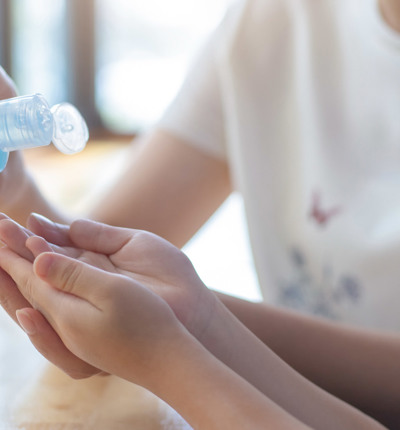
Product safety and COVID-19: What can consumers expect?
Tina Patel and Irene Karidas, from the product safety and consumer law team, discuss the regulations and guidelines relating to product safety standards during the coronavirus outbreak.
Posted on 12 May 2020
There is no doubt that these are unprecedented times for everyone. Consumers find themselves in a situation where they may wonder, in amidst a global health pandemic, where resources are scarce and production needs to be maximised, what is the current standard of safety that we are entitled to expect?
A review of recent guidance published by the Office of Product Safety and Standards concludes that a pandemic is no cause for the standard of the safety of products to fall; it must be maintained at all times. But there is no doubt that the novelty of the COVID-19 pandemic may also call for novel action from producers and manufactures.
Many manufacturers of products have been facing defeat, as it appears that they are shutting down or their employees are being furloughed. During this crisis, are those manufacturers who are still open placing more emphasis on maximising production, even if this may risk the actual safety of the products they are circulating in the market? How are we sure that, with the current rapidness of production, safety regulations can be adhered to?
Hand cleaning and sanitising products
Manufacturers have seen an excessive demand for hand cleaning and sanitising products. This means manufacturers need to speed up their processes in order to cater for the demand, which one would imagine is fairly different to what they are used to, particularly considering that they may have a reduced staff size. Hand cleaning and sanitising products are classed as either cosmetic products, biocides (if they kill germs) and medicines if their use is in operating theatres and claim to treat and prevent infection associated with pathogens. As such, for each of these items, a different regulation applies. For cosmetic products, producers and manufactures follow the Cosmetic Product Regulations whereas biocides and medicines are regulated by the Health and Safety Executive. In a recent government publication dated April 2020, it has been made clear that there is no exception during a pandemic, as to whether these regulations are to be followed, regardless of the speed of production. Safety standards are to be adhered to even under these unprecedented circumstances we find ourselves in.
Since the question of whether they should be adhered to is established, the next question is how do we ensure this happens? The government has set out the consequences manufacturers may face if they fail to comply with the relevant regulations. Although the course of business may not be at its smoothest right now, the Trading Standards Authority as well as Health and Safety Executives are still able to take action should a manufacturer not comply with any of the above-mentioned regulations. It is true that now, more than ever, the safety of such products is imperative for consumers, especially in light of the surge in sales. The bottom line is that consumers should take comfort in knowing that the safety of products should not be compromised.
Unlicensed products in light of covid-19 outbreak
On a different note, following the Medicines and Healthcare Products Regulatory Agency’s effort to tackle global illegal online sales of medicines and medical devices, it was noted that there were 2,000 advertisements of unlicensed products found online that related to COVID-19 products, which were then seized. This included products that were marketed as ‘coronavirus medicine’ and other products claiming to treat or prevent the spread of the virus. The government has sought to issue warnings when buying medicines online, informing that not only is the sale of such products illegal but could put consumers’ health at great risk.
What about the products that are actually being produced as a result of the outbreak?
There has been a stellar response by manufacturers quickly producing a mass of Rapidly Manufactured Ventilator Systems and Personal Protective Equipment (PPE). Despite the imminent need for these devices and equipment, the government guidance highlights that “compliance with the essential safety standards must be demonstrated for patient safety”. As such, it is clear that safety is not to be compromised under any circumstances and existing product safety regulations still apply.
However, it is apparent that, for the interest of time, some parts of the existing regulations have been eased. For PPE, guidance published for manufacturers has stated that the EU conformity assessments have been relaxed, however such products are not to be placed on the wider market. A conformity assessment is a check conducted before the circulation of products on the market, in order to ensure that legislation requirements have been met and that the product ‘conforms’ to the standards consumers ought to expect under the law. This, however, does not mean that the manufacturers will not comply with the health and safety requirements before distributing any PPE products.
It is evident that emphasis is to be places on product safety even under the most unique circumstances we find ourselves in. It is impressive to see the incredible response from manufacturers to the high-demand in health products related to the outbreak of the virus and alongside it, the governmental response which highlights the importance of adherence to product safety rules. As such, despite the uncertainty we find ourselves in, it is comforting to know that consumer and product safety still remains paramount.

